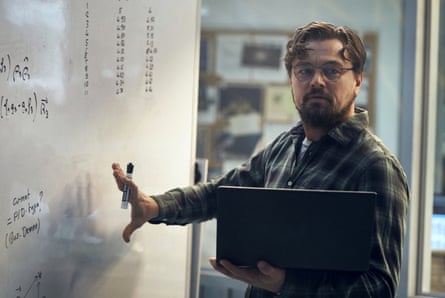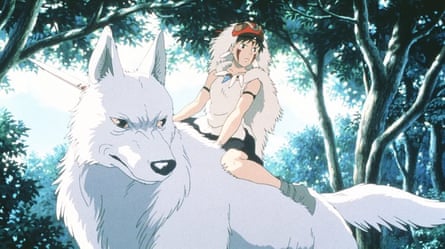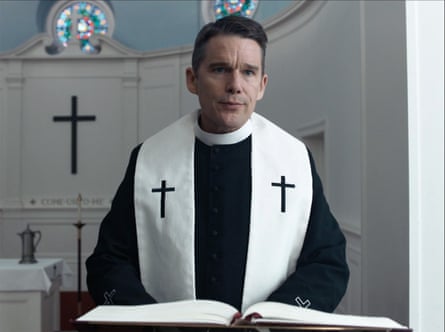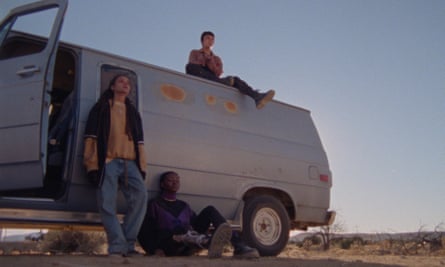We are rapidly becoming the all-star cast of the biggest disaster movie of all time, and tragically it’s a global success. Towering infernos blaze over Canada, the Canaries and Rhodes, Bangladesh, China and even northern England have had their own devastating Poseidon adventures while the whole world continues to reel in the socioeconomic chaos of the Covid contagion and in fear of an H1N1 outbreak. Only the dramatic effects are no longer computer-generated, they are real, and people are really dying.
I went to the Odeon in the 1970s and was terrified and wowed by the disaster film genre. Since the late 1980s I’ve been watching the real world’s climate effects department ramp up its protests to our wholesale inactivity and disregard for the science that says, with increasing accuracy, that humanity is facing Armageddon. But there’s been another competing genre, the conspiracy/disinformation movie, the creepy corrupt B-movies released, not by Hollywood, but by big oil, not X-rated at the multiplex but woven insidiously into our lives as extras in this catastrophe… and the repeats, re-streams, re-runs orchestrated by those fuelling the flames.
So it’s time to rebel, or just moan and die: that’s your choice. The best rebels rely on good intel and need a secure base founded on the facts, so I suggest before you climb aboard your TIE fighters you watch and digest the following films. Because for all its frippery and Marvellous nonsense, some more valuable parts of the movie industry are trying to tell us the truth.
If I could add a movie to the list here it would be Roland Emmerich’s 1996 film Independence Day, starring Will Smith and Bill Pullman. I know, flag-waving gung-ho Americana, but it does have one significant message to address our current and greatest ever crisis. When the threat is tangible, an alien invasion, the whole world unites to address the bloody mess it’s in. All nations, all religions, all politics, all peoples rise to the challenge of preserving humanity. Well, climate breakdown isn’t an alien threat – it’s real, and we are one species on one planet with one massive problem and one last chance to sort it out. And Bruce Willis and Steve McQueen are sadly no longer available so you had all better find a bit of Smith/Pullman and start digging in for the fight for human life on Earth. Chris Packham
Chris Packham’s five-part series Earth is available on BBC iPlayer. The accompanying book, Earth: Over 4 Billion Years in the Making, by Chris Packham and Andrew Cohen is published by William Collins (£25)
2040
(Damon Gameau, 2019)

Australian actor turned film-maker Damon Gameau is a bluff, likable figure presenting himself as a rare optimist in a field of doomsayers: addressed to his four-year-old daughter, this decidedly upbeat documentary offers a constructive manifesto for combating climate change by the titular near-future deadline. He’s no academic, which is the point: a lot of his advice comes down to common sense, as he advocates reducing meat eating (without insisting on total veganism) and envisions a future without car ownership. But it’s helpful and energising to watch a film of such ideas, by someone who’s also just muddling along.
Best for: Accessible, everyday prompts on how to start being more eco-conscious.
All That Breathes
(Shaunak Sen, 2022)

The title of Indian film-maker Shaunak Sen’s exquisite, Oscar-nominated documentary comes from a much-treasured quote by the late mother of its human subjects, Delhi-based brothers and conservationists Nadeem Shehzad and Mohammad Saud: “One shouldn’t differentiate between all that breathes.” It’s the guiding principle for a film that doesn’t address specific aspects of climate change, instead surveying all aspects of an ailing, polluted urban ecosystem – filtered through the makeshift bird sanctuary run by Nadeem and Mohammad, where all life has equal value, and there’s no hierarchy of issues to address. Help and heal what you can, the film tells us.
Best for: Instilling a holistic view of a crisis we can’t afford to compartmentalise.
Q&AFilm-maker Shaunak Sen
Show
The Calcutta-born film-maker Shaunak Sen was Oscar-nominated for his 2022 documentary All That Breathes, about two brothers who run a bird hospital in North Delhi for injured black kites. It was Sen’s second feature after City of Sleep, which explored homelessness and sleep in Delhi.
Why did you decide to make the film?
When you live in Delhi, you’re always obsessing about the air because you’re surrounded by this dystopic, grey sensorium. I was looking for people who have a profound relationship with the skies, when I came upon these two brothers, Nadeem and Saud. Their work is singular, and the way they speak about urban ecology is really poetic. That small, grubby basement [where they treat birds] took on metaphorical ways of representing a broader zeitgeist that everybody in the world is grappling with.
What impact has the film had?
There was a tremendous media spotlight in the runup to the Oscars. And our producers decided to financially support the bird hospital for a year and hopefully more.
Did making the film change you?
It broadened something in me, in the sense that I spent three years looking up. I want to commit myself to making films that have something to do with the planetary problem. It’s infected me with a zeal for the natural.
Essential books on the climate crisis?
Amitav Ghosh’s The Great Derangement is a fabulous book. He approaches the delirium that prevents us [from dealing with climate change] with great urgency. Killian Fox
Don’t Look Up
(Adam McKay, 2021)

Critics weren’t enamoured of Adam McKay’s Netflix hit – a big, blunt, broadly comic allegory for the world coming to an end and nobody but the scientists being bothered – but it connected with the public, even spurring Twitter spats in which detractors were labelled climate change deniers. The film works by disguising the issues a bit: global warming here takes the form of a massive meteor hurtling towards Earth, but its manic depiction of social and political division in the face of the crisis does ring true. Naturally, Leonardo DiCaprio, a prominent environmental activist in his spare time, takes the role of the ignored, exasperated climate expert.
Best for: Starting the conversation with someone who’d rather be entertained first, educated second.
Princess Mononoke
(Hayao Miyazaki, 1997)

Made in 1997, anime master Hayao Miyazaki’s dazzling historical war fantasy was rather ahead of its time in its stark warning over the consequences of humans plundering the Earth’s natural resources. It’s framed not as a tidy fable but as an epic battle between the residents of Irontown – whose expansions and thriving firearms industry mean the deforestation of the surrounding landscape – and the spiritual guardians of the woods, eventually arguing for compromise and balance between the two. It’s rousing, thoughtful and suitable for all but very small children (who may prefer the less artful but more benign animation FernGully on a similar ecological theme).
Best for: Parents looking to seed awareness in their children of climate change and our role in it.
Utama
(Alejandro Loayza Grisi, 2022)

Nominated for a grand jury prize at last year’s Sundance festival, Bolivian director Alejandro Loayza Grisi’s debut film is a simple, lyrical drama about rural hardship and devotion that doesn’t declare its message in all-caps – instead trusting viewers to surmise the environmental threat in its parched, poetic imagery. But it’s foremost a story about people, as an elderly farming couple face being uprooted from the Bolivian highlands by severe drought, urged to relocate to the city by their well-meaning grandson. Loayza Grisi makes a heartfelt case against not only the natural destruction wrought by climate change, but its gradual eroding of indigenous cultures and communities.
Best for: Bringing an intimate, tear-jerking human dimension to a vast global subject.
70/30
(Phie Ambo, 2021)

Greta Thunberg may be the universally recognised face of youthful opposition to climate change – and duly got her own dedicated documentary portrait, Nathan Grossman’s I Am Greta, in 2020 – but this stirring doc from Denmark is a heartening reminder that she’s far from a lone voice in her generation. Phie Ambo chronicles the sizeable movement of young Danish people who took to the streets successfully to pressurise the government into new, bolder climate policies: the title refers to a pledge targeting a 70% reduction in CO2 emissions by 2030. Whether they’ll meet it, nobody knows, but it’s a strong reminder that activism yields results.
Best for: Bolstering jaded adults’ faith in the next generation, and children’s in their own.
Thank You for the Rain
(Julia Dahr and Kisilu Musya, 2017)

This hopeful underdog portrait sees Norwegian filmmaker Julia Dahr collaborating with Kenyan activist Kisilu Musya – who takes a co-directing credit – to chronicle the latter’s ascendance from drought-stricken farmer to community leader, bringing a valuable grassroots perspective to the global climate change campaign. Candidly chronicling his own agricultural struggles over several years via a first-hand video diary, Musya finds few easy solutions but gradually raises awareness among his peers: the first step in combating a crisis that nobody can fight alone. It’s a tough-minded but good-humoured film, which doesn’t impose a global perspective on its subject – instead making a local emergency vivid and immediate.
Best for: A view of the crisis from the perspective of those most severely affected.
Q&AFilm-maker Julia Dahr
Show
Julia Dahr is a Norwegian documentary-maker whose work aims to spark debate around climate issues. Thank You for the Rain, co-directed with its subject, Kisilu Musya, follows a Kenyan farmer’s struggle against the effects of the climate emergency, both locally and on the global stage at Cop21.
Why did you decide to make the film?
I was 22 and volunteering in a youth NGO in Kenya. I realised there were no human stories on the injustice of climate change. Most were about polar bears, or statistics. When I met Kisilu, it was so clear [that he would carry the film] with all his energy and humour and his desire to help his community. He asked for a camera to make his own video diary, and put into words how climate change affects him on a very deep level.
Have you had any response from politicians?
Kisilu used the film as a tool to gather local politicians, NGOs and farmers to make plans together for the first time. After seeing the film, one local farmer donated land to make an earth dam to store rainwater.
Did making the film change you or your views?
I learned that it’s very hard to reach beyond people who are already engaged in the climate movement. My new film, Stayers, is trying to bridge that divide. But films about the climate crisis can make a difference. One study in one of the Nordic countries showed that a lot of people get their information about climate change from climate documentaries. Killian Fox
The Boy Who Harnessed the Wind
(Chiwetel Ejiofor, 2019)

Another family-friendly entry focused on youthful solutions to the crisis, this time with a more individualist bent, this crowd-pleasing directorial debut from actor Chiwetel Ejiofor is adapted from a memoir of the same title by William Kamkwamba, a Malawian inventor who as a teenager developed a wind turbine from recycled materials to power the broken water pump in his drought-stricken village. It’s largely free of slick, Disney-style sentiment – we actually see the life-or-death consequences of the crisis – but still heartwarming, with an uplifting arc that stresses both personal self-improvement and communal healing.
Best for: Empowering overwhelmed young people who may feel they have nothing to bring to the fight.
David Attenborough: A Life on Our Planet
(Alastair Fothergill, Jonathan Hughes, Keith Scholey, 2020)

At this point in his career, 97-year-old David Attenborough is more than just a national treasure: for the country’s more secular population, he may be the closest thing we have to a voice of God, deeply wise and connected to the natural world. Who better, then, to give us all a bit of a talking-to? Breaking from the enraptured tone of his many wildlife specials, the eminent naturalist instead offers a sober, sorrowful reflection on the damage we’ve collectively done to a world he won’t share with us much longer – before pivoting, more encouragingly, to plans for repair and renewal, leaving us to make the next move.
Best for: Hard truths and tough love from one of the world’s most unifying figures.
First Reformed
(Paul Schrader, 2017)

Environmental discussion and devout Christian doctrine don’t always sit well together: those who believe the planet was created by divine forces can be sceptical about man’s capacity to destroy it. Veteran auteur Paul Schrader’s thorny, challenging parable addresses that conflict in its story of an upstate New York priest (a superb Ethan Hawke) who, persuaded by a radical environmentalist in his parish, argues for climate change as a matter of Christian stewardship. This being small-town America, not everyone agrees. Bringing contemporary eco-consciousness to a classical story of faith in crisis, the film offers little comfort or counsel, but it’s a provocative conversation piece.
Best for: Starting the debate with those who see climate denial as a religious matter.
An Inconvenient Truth
(Davis Guggenheim, 2006)

A surprise commercial success in 2006 that wound up taking two Oscars, this instructive documentary by Davis Guggenheim – presented with square, genial dad energy by nearly-president Al Gore – may not have been the first film on climate change, but it brought the subject firmly into the mainstream. Today, its teacherly PowerPoint-style presentation may seem a bit dated (it wasn’t especially cutting-edge then, either), but its points still hit home. Plus, it served as a primer for other US politicians looking to speak on the issue: Gore’s legacy extends to the recent doc To the End, about young women in power (including congresswoman Alexandria Ocasio-Cortez) fighting for a Green New Deal.
Best for: A straight-up, bullet-point breakdown of the facts.
Burning
(Eva Orner, 2021)

A sharp, palpably angry Australian documentary that addresses a local environmental calamity with escalating global resonance, Eva Orner’s film analyses the bushfire crisis that tore through Australia in the summer of 2019-20. Seen from multiple points of view – the residents affected by the blaze, the firefighters, tech entrepreneurs proposing solutions and, most fiercely, the politicians who were ill prepared for the crisis and its consequences – it’s a harrowing vision of a world literally on fire. With casualties ranging from humans to koalas, it’s a bitter warning to other countries merely waiting for disaster to strike.
Best for: A regionally specific snapshot of a terrifying global threat.
How to Blow Up a Pipeline
(Daniel Goldhaber, 2022)

As the comparatively mild symbolic protests of Just Stop Oil continue to make headlines and divide public opinion, Daniel Goldhaber’s urgent indie thriller invites audiences to consider the implications of more extreme activism – and at what point it tips over into terrorism. Inspired by ideas in Andreas Malm’s nonfiction book of the same name, it follows a young group of eco warriors as they plot to destroy a section of Texas oil infrastructure, neither entirely endorsing nor condemning their quest. Tense and bristling with both in-the-moment anxiety and fear for the future, it should stop short any hand-wringing over chucking orange confetti on George Osborne.
Best for: Fuelling the ongoing debate over more aggressive environmental action.
Q&AFilm-maker Daniel Goldhaber
Show
New York-based indie film-maker Daniel Goldhaber captured a spirit of gen Z climate rebellion with his gripping heist thriller How to Blow Up a Pipeline, about young activists targeting Texan oil infrastructure.
The film feels urgently of the moment: why did you decide to make it?
After the mass lockdown protests in the US in 2020, then the 6 January insurrection, I wondered, will I ever make a movie again? I was looking for some greater sense of purpose. And I grew up in the climate movement; my parents worked in climate science. Finding a way to explore this subject in a way that felt both creatively and politically inspiring had long been an interest of mine.
How did you adapt Andreas Malm’s book — a kind of manifesto — into fiction?
The premise was: what happens if we and our friends executed a mission like this? We were asking what might radicalise us. That started a research process that was really wedded to our own communities.
Did your own perspective shift in the process?
It was surprising how many people one degree of separation away from us had experienced first-hand the effects of climate — whether they’d been displaced, or were dealing with rare health disorders as a result of exposure to fossil fuel refineries.
What do you want audiences to leave your film thinking?
We’re making an emotional appeal to audiences: hey, do you relate to these characters? And if so, I hope that people come away questioning the moral underpinnings of our current system of capitalism, and thinking about the tactics we need to adopt if we want to avert total catastrophe. Guy Lodge
How to Let Go of the World and Love All the Things Climate Can’t Change
(Josh Fox, 2016)

The title may sound like a riff on the nihilism of Stanley Kubrick’s nuclear crisis comedy Dr Strangelove, Or How I Learned to Stop Worrying and Love the Bomb, but this arresting documentary from US film-maker Josh Fox – who previously made the influential anti-fracking doc Gasland – pinballs wildly between doomy prophecy and a motivating call to arms, thus mirroring the erratic desperation many of us are feeling. Travelling the world to witness climate change’s most visible zones of impact, Fox doesn’t go easy on the audience, but does point to ways for us to live with what we’ve wrought.
Best for: Climate-anxious people caught between hope and despair.
Snowpiercer
(Bong Joon-ho, 2013)

Many a sci-fi blockbuster has imagined a future planet facing climate apocalypse, but few with as much delirious imagination and pointed political ire as Bong Joon-ho’s breakneck action film – set entirely on a vast, globe-circling train housing the entire surviving population of a world that, having failed to combat global warming, has now been plunged into an uninhabitable ice age. So far, so silly, but it’s Bong’s depiction of entrenched class division in such a crisis – where dictators protect the privileged and the working classes sustain them, all in separate carriages – that rings chillingly true.
Best for: A vivid vision of a worst-case scenario.
For details of where to stream all titles see justwatch.com – apart from How to Let Go of the World… which is on the director’s own Vimeo page, and Thank You for the Rain which can be rented here

Comments (…)
Sign in or create your Guardian account to join the discussion